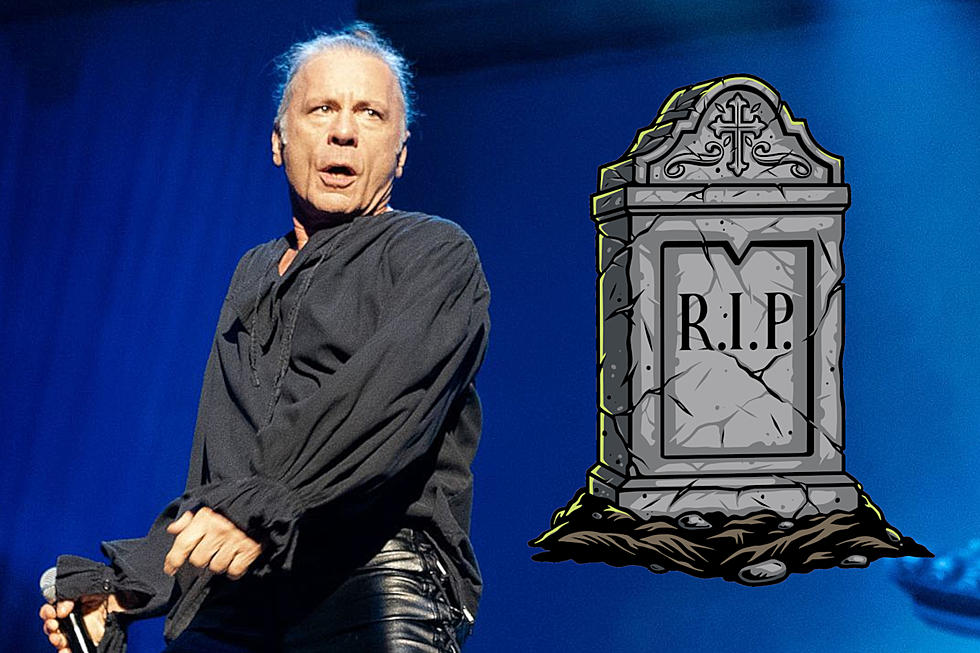
When Bruce Dickinson Went Solo Again on ‘Tyranny of Souls’
By May 2005, nearly five years had passed since legendary heavy metal singer Bruce Dickinson had made his peace with Iron Maiden and taken part in the group’s massively successful reunion albums and tours.
Still, artistic and commercial happiness with the band that made him famous didn’t dissuade Dickinson from briefly reviving his dormant solo career with Tyranny of Souls on May 23, 2005.
It wasn't in any way surprising, since Tyranny of Souls had much in common with Dickinson’s final, widely acclaimed pair of LPs prior to rejoining Maiden, 1997’s Accident of Birth and ’98’s The Chemical Wedding. From those efforts, Dickinson kept a concerted focus on heavy metal – as opposed to the experiments of his initial solo work – and the dependable presence of collaborator Roy Z., who produced, played guitar and bass and co-wrote all of the new album’s tracks.
What Tyranny of Souls didn’t have in common with those earlier triumphs was the second guitar and always-welcome songwriting mastery of Dickinson’s Iron Maiden-mate, Adrian Smith. But the material hardly suffered for his absence, as evidenced by a brace of reliably majestic metal anthems in the infectious “Abduction,” the underrated “Power of the Sun,” the Wright Brothers tribute “Kill Devil Hill,” the philosophical “River of No Return” and the all-purpose title track.
Listen to Bruce Dickinson's 'River of No Return'
Departures, if you could call them that, were restrained enough so as to not derail the album’s mesmerizing flow, and entailed brief dalliances with speed metal (“Soul Intruders,” powered by the double kick drums of Puddle of Mudd's Dave Moreno), incorporating folksy acoustic guitars (“Navigate the Seas of the Sun,” whose title surely did Spinal Tap proud), the out-sized choruses of “Devil on a Hog,” and the demonic psychedelia of “Believil.”
Given all of this steel-plated excellence, it was no surprise when Tyranny of Souls charted impressively in more than a dozen countries (nowhere higher than a No. 2 in Greece). What was surprising was that it rose no higher than No. 180 in America. That was their loss, however, as plenty of other fans still got their money’s worth from the Human Air Raid Siren.
See Iron Maiden Among the Top 100 Albums of the '80s
More From Ultimate Classic Rock









